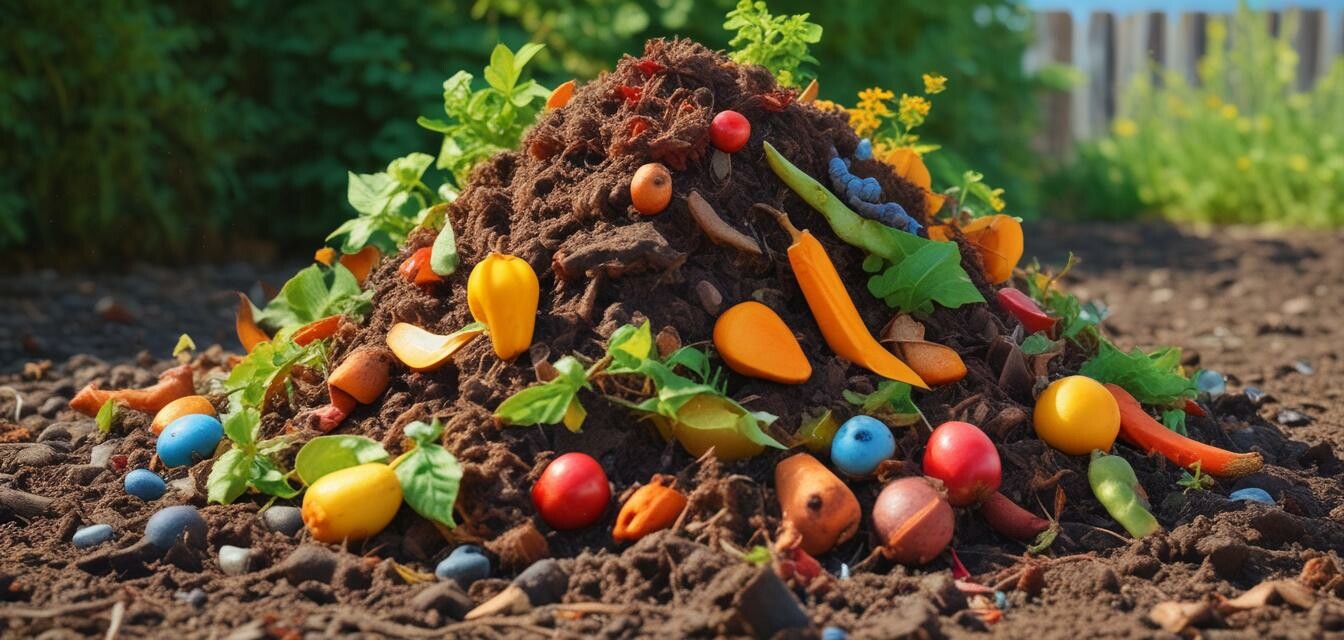
Legislative changes impacting composting practices
Key Takeaways
- New legislation is shaping the future of composting practices.
- Regulatory changes can lead to increased adoption of composting in communities and businesses.
- Understanding laws impacting composting is crucial for gardeners and companies.
- Stay informed on innovations and best practices in the industry.
- Adapting to legislation may enhance sustainability efforts and community engagement.
Composting has increasingly become an essential practice for gardeners and businesses alike, as a way to reduce waste and contribute to environmental sustainability. However, recent legislative changes have started to reshape composting practices, presenting both challenges and opportunities. In this article, we explore the new laws affecting composting, what they mean for gardeners and companies, and how staying informed can enhance sustainable practices.
Understanding the new legislation
Various regions across the country are introducing new legislation aimed at promoting composting and sustainable waste management practices. These laws could range from mandatory composting programs to financial incentives for businesses that adopt composting practices. Let’s take a closer look at some of the key areas affected by recent legislative changes:
| Legislation Type | Impact | Examples |
|---|---|---|
| Mandatory Composting | Encourages local governments to implement composting programs. | California's SB 1383, New York City's Zero Waste Plan |
| Incentives and Grants | Provides funding for businesses to invest in composting infrastructure. | Community composting grants, rebates for compost bins |
| Education and Outreach Programs | Promotes awareness and best practices surrounding composting. | Local workshops, educational campaigns for citizens |
Implications for gardeners
For home gardeners, these legislative changes can present exciting opportunities as well as some challenges. Here are a few implications for backyard composters:
- Increased accessibility: New laws may lead to the development of community composting programs, where gardeners can drop off their organic waste.
- Better resources: With government support, local organizations may offer more educational resources and workshops on composting practices.
- Enhanced sustainability: Understanding and adapting to these laws can empower gardeners to have a positive impact on their environment.
Getting involved
It's important for gardeners to stay informed about changes in legislation. Consider joining community groups focused on sustainability or participating in local government meetings to voice your support for composting initiatives. Also, visiting resources like buying guides for composters can help you make informed decisions in line with new regulations.
Implications for businesses
Businesses that deal with organic waste can greatly benefit from staying ahead of the curve when it comes to legislative changes. Here’s what they need to know:
- Compliance: Understanding compliance requirements will be critical to avoid fines and enhance credibility.
- Cost savings: Businesses that adopt composting practices may qualify for tax incentives or grants.
- Marketing advantages: Businesses emphasizing sustainability can attract eco-conscious customers.
Exploring new technologies
As businesses transition to adhere to new regulations, exploring the latest composter technologies can provide valuable advantages. For instance, smart composters employ innovative processes that can simplify organic waste management significantly.
The future of composting
The landscape of composting is changing, driven largely by new legislation focused on sustainability and waste reduction. These regulations are likely to encourage broader community involvement in composting efforts and enhance the role of businesses in waste management.
Anticipating future changes
As the composting industry evolves, it is crucial to remain flexible and ready to adapt to further legislative changes. Gardeners and businesses alike should consider taking proactive steps such as:
- Monitoring local and state legislation regarding composting.
- Engaging with community composting initiatives.
- Staying updated with the latest composting technologies through resources like our composting trends blog.
- Collaborating with like-minded individuals to foster supportive networks.
Tips for beginners
- Start small: Consider starting a home composting setup before expanding to larger projects.
- Research composting materials: Understand what can and cannot be composted.
- Share your experiences: Connect with local gardening clubs to exchange tips and resources.
- Stay informed: Regularly check for updates in legislation regarding composting.
Pros
- Promotes environmental sustainability and responsible waste management.
- Encourages community engagement in eco-friendly practices.
- Can lead to cost savings for businesses that adopt composting.
Cons
- Initial setup costs for businesses may be high.
- Some regions may lack resources and support for new legislation.
- Potential confusion surrounding compliance guidelines.
Conclusion
In summary, legislative changes are influencing composting practices in significant ways. By understanding these changes and adapting to new regulations, both gardeners and companies can enhance their sustainability efforts and create a positive impact on the environment. Stay connected with news in the composting world through our dedicated section on composting news to keep abreast of upcoming changes that may affect you.